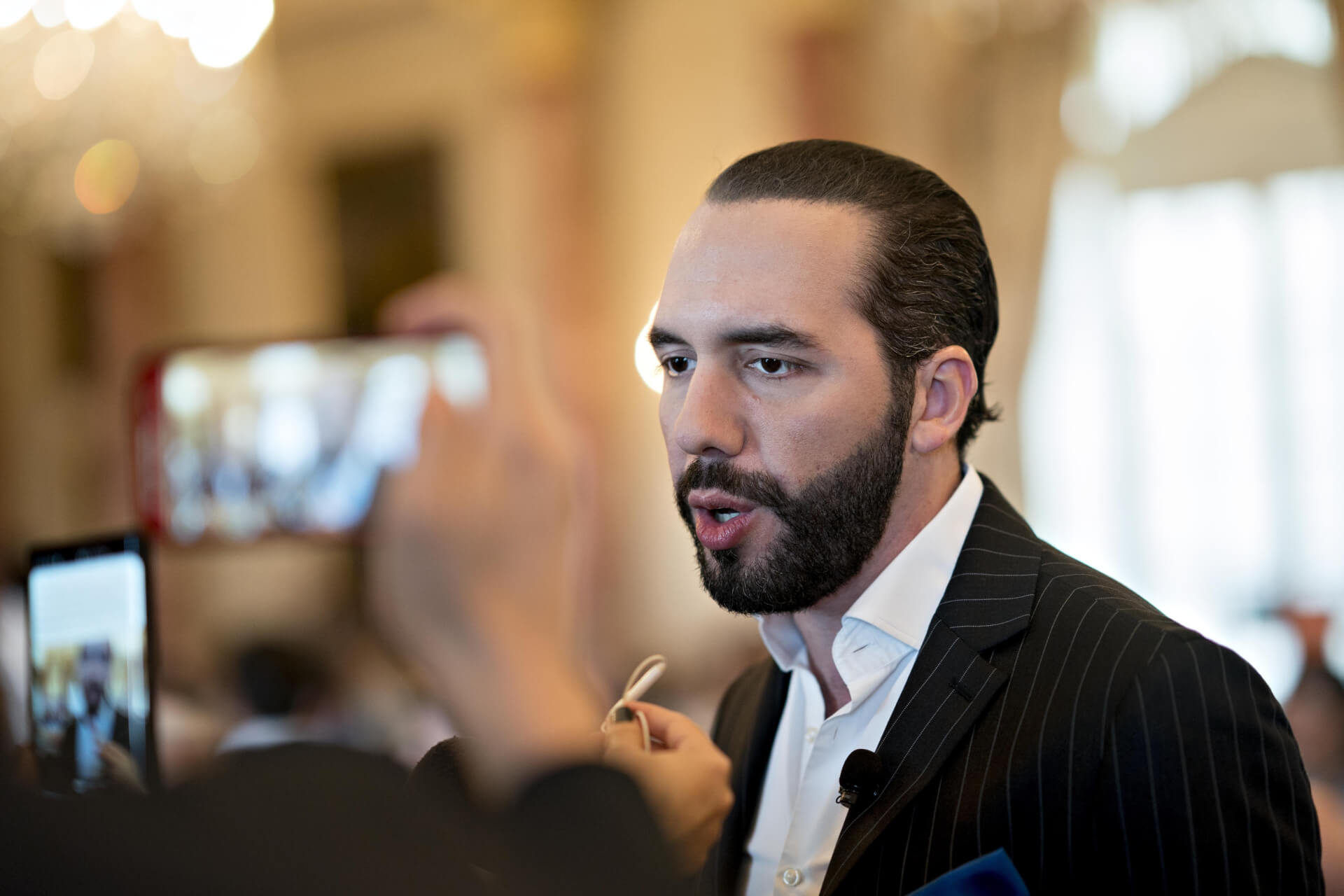Opposition lawmakers in El Salvador are seeking to remove President Nayib Bukele from office ahead of the legislative elections on February 28 by framing him as “physically or mentally unfit” to hold the presidency. Although Bukele commands the support of the citizenry, he has on many occasions found himself strangled by the opposition-held legislature.
Ricardo Velásquez Parker from the conservative Nation Republican Alliance (ARENA) party said, “We’re either facing a criminal or a nut; we’re facing a deranged person who is lacking the faculties to do the job.”
ARENA’S proposal has also been backed by the leftist Farabundo Martí National Liberation Front (FMLN) and the Christian Democrat Party. This represents a huge danger to the rule of Bukele, give that these three parties collectively hold 63 of the parliament’s 84 seats. The proposal to depose Bukele requires two-thirds support, or 56 votes.
Bukele took to Twitter to denounce what he sees as an attempted coup ahead of the legislative election in two weeks, saying, “It’s incredible, but revealing, to see the self-proclaimed ‘defenders of democracy’ maintain total silence before this attempted parliamentarian coup d’etat, just days before a democratic election in which all of the polls say they will lose 80% of their seats.”
The parliament is now set to appoint a medical commission, and if the commission deems Bukele mentally unfit to hold office and two-thirds of lawmakers vote to oust him from power, Bukele will be impeached and Vice President Felix Ulloa would become President.
Bukele was elected into power in June 2019 and broke the monopoly of ARENA and FMLN, who controlled the country for over three decades. This month’s parliamentary election is thus seen as a crucial opportunity for the president to establish his control over the legislature and defeat the main El Salvadoran parties on all fronts.
Despite his popularity, the El Salvador leader has courted criticism during his rule. For example, last February, he ordered the armed forces to storm the Congressional building in order to pressure lawmakers to approve a $109 million loan to the Central American Bank for Economic Integration. This led to arguments that Bukele had blurred the line between the civilian government and the military.
Opposition lawmakers mike Mauricio Vargas have said, “During his term, Bukele violated the Constitution and the laws, attempted a coup d'état, militarized the Congress, called for insurrection, and attacked democracy.”
He has also been criticized for his heavy-handed approach to tackling crime in the country, with many saying that it hasn’t worked. For example, last April, he authorised the country’s police and military to use lethal force against gang members after over 53 gang-related murders. And just last week, Doctors Without Borders temporarily suspended its operations in an area of El Salvador’s capital city, San Salvador, after one of its ambulances was attacked by armed assailants. Journalists, too, have “faced threats and harassment”.
His ‘outsider’ persona is seen as creating harmful divisions within society and Salvadoran politics. Last week, unidentified gunmen murdered two FLMN activists. However, President Bukele played down suggestions of another civil war by baselessly alleging that the FLMN itself was behind the attack as part of an attempt to gain sympathy before the legislative election later this month.
Some members of the opposition and their supporters feel that Bukele’s approach is potentially leading the country down the path to another civil war. Between 1979 and 1992, at least 80,000 people were killed and over 5,000 more went missing.
In fact, Bukele has in the past spoke disparagingly about the importance of the 1992 peace accords which were signed by the erstwhile Salvadoran government and the FLMN rebels, calling them a “farce”. Although this angered many citizens, he continues to remain popular, and the opposition is evidently trying at every turn to diminish the credibility of his governance ahead of the legislative election, when his party is expected to win a majority of seats and greatly reduce the power of FLMN and ARENA.
Bukele enjoyed the support of the Trump administration for his decision to sign on to the Asylum Cooperative Agreement along with Guatemala and Honduras. As a result of the agreements, the US sent some asylum seekers who arrive at its borders to the three partnered countries under the Asylum Cooperative Agreements. Put simply, the deals said that migrants could seek shelter in the countries they pass through on their way to the US. The deal was heavily criticised, as it placed highly vulnerable populations in further danger, given the high propensity for robberies, rape, human trafficking, torture, and murder in the three countries that the US has designated as “safe third countries. It is no coincidence that citizens from these countries are seeking asylum in the US to escape those same dangers.
Keeping these dangers in mind, the Biden administration suspended the Asylum Cooperative Agreements. Moreover, it appears that the US government is reluctant to speak with Bukele before the legislative election, given that this may make it look as though Washington is endorsing him. In fact, the Biden administration reportedly rejected Bukele’s request to meet with him when he travelled to Washington on an unannounced trip last week. Bukele, though, has since said that he never requested a meeting, but did meet with Organisation of American States’ Secretary-General Luis Almagro.
Nevertheless, regardless of whether or not Bukele has Washington’s support, he faces a tough challenge to remain in power so long as the opposition controls the legislature.
El Salvador Opposition Seeks to Impeach President Bukele Ahead of Legislative Election
Three opposition parties in El Salvador, who collectively hold 63 of the parliament’s 84 seats, are seeking to remove President Nayib Bukele from power by deeming him mentally unfit for office.
February 11, 2021

IMAGE SOURCE: ANDREW HARRER / BLOOMBERGEl Salvador President Nayib Bukele
